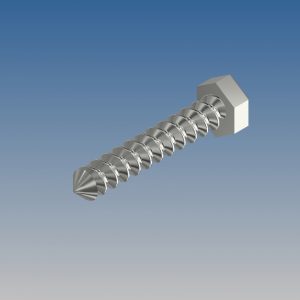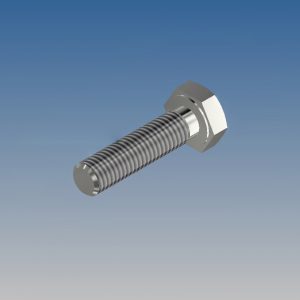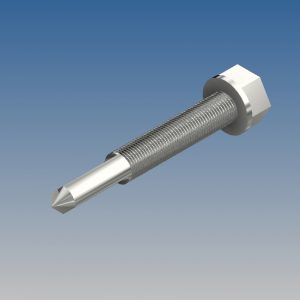Screws
Mechanical fasteners, such as screws, are essential components in a wide range of construction, automotive, and industrial applications. These fasteners, featuring threaded shafts, are designed to secure parts together by screwing into pre-drilled or self-tapped holes. Various types are available, each tailored to specific materials and purposes, making them versatile solutions for numerous projects.
Types of Fasteners
- Wood and Self-Tapping Variants:
Wood screws and self-tapping types are known for their tapered shafts and sharp threads, which allow them to cut matching threads directly into the material they fasten. Ideal for wood, metal, or plastic, these fasteners provide strong holding power, especially in timber or sheet metal. Their sharp, pointed tips make penetration easy, often eliminating the need for pre-drilling. - Machine Fasteners:
Machine screws feature a fully threaded, parallel shaft and closely resemble bolts but without an unthreaded shank. Commonly used in metal or plastic assemblies, these are screwed into a tapped hole or paired with a nut. They come in various head styles, each suited to different applications:- Countersunk Head: Designed to sit flush with the surface, offering a clean, smooth finish.
- Cap Head: Cylindrical in shape, ideal for applications requiring strong fastening with minimal protrusion.
- Pan Head: Rounded and slightly raised, these are often used in electrical assemblies.
- Grub Fasteners: Headless and designed to be fully inserted into a tapped hole, frequently used to secure parts on a shaft.
Socket-Headed Options
Socket-headed fasteners are a specialized category that features a recessed socket in the head, allowing them to be tightened or loosened with a matching tool. Common socket types include:
- Hex Socket (Allen Key): Widely used for strong torque transfer and ease of operation.
- Crosshead: Versatile, compatible with both flathead and Phillips screwdrivers.
- Torx: Known for its star-shaped socket, providing superior grip and reduced cam-out.
- Pozidriv: An improved version of the Phillips head, offering better torque and reduced cam-out.
Self-tapping and Wood Fasteners
Self-tapping variants are designed to cut their threads as they are driven into sheet metal or other materials. Although often associated with metalworking, this term also applies to wood and plastic fasteners. These types typically feature a sharp, pointed end and a tapered shaft, ensuring easy penetration and a secure fit, which is crucial for applications requiring strong holding power.
Ensuring Secure Fastening
To maintain a secure hold, these fasteners rely on friction between their threads and the material they connect. For self-tapping variants, friction is enhanced by the radial expansion of the hole as they cut their threads. In machine fasteners, friction mainly comes from the axial force applied during tightening, which creates tension and compresses the parts being joined. Additional measures, such as locking nuts or thread-locking adhesives, may be used to prevent loosening in high-vibration environments.
Conclusion
Fasteners like screws are indispensable for ensuring the structural integrity and reliability of assemblies across various industries. Whether you need a machine variant for precise metalwork or a self-tapping option for a quick and secure hold in sheet metal, selecting the right fastener for your application is crucial. Our extensive range includes options for every need, ensuring your projects are built with the highest standards of strength and durability.
Showing all 3 results
Showing all 3 results



